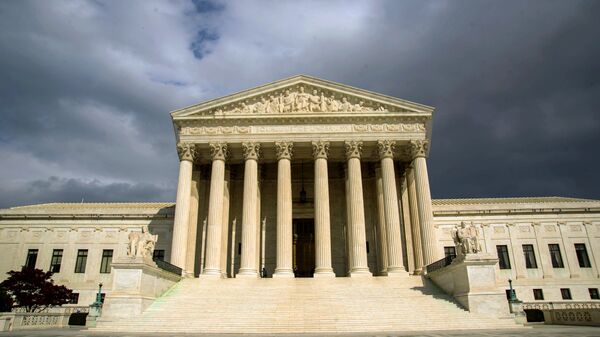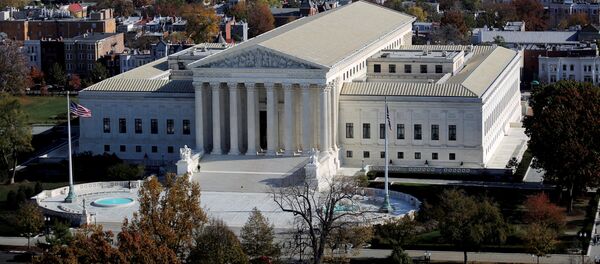Having already gone through two previous versions, the latest document prevents the entry of citizens of Iran, Syria, Somalia, Libya, Yemen and Chad into the Land of the Free. It also includes nationals from North Korea and Venezuela.
But the Supreme Court giving the go-ahead shouldn't be taken as the justices saying they agree with the ban, says Matt Adams, the legal director of the Northwest Immigrant Rights Project.
Speaking to Radio Sputnik's Loud and Clear, Adams tells show hosts Brian Becker and John Kiriakou that the Supreme Court was simply "uncomfortable with having a lower court halt the executive's actions, especially when that's coming from a single judge… a district court judge."
"It's important to understand this isn't the Supreme Court weighing in on the merits of the matter," says Adams. "They still haven't made any decision about whether it does pass constitutional muster."
As to whether or not the travel ban will have a "drastic impact" on travelers, Adams says it's still too early to tell, but speculates it will likely have a "broad impact."
"I think the impact is going to be in the future, as to those who are applying for the visa or are still in the process of applying for the visa but haven't been approved," he said.
The litigation itself doesn't actually address national security concerns, despite claims from officials, Becker noted. Instead, he says, it's about politics, xenophobia and Islamophobia.
"It's well documented that Trump says, ‘yes, this is me fulfilling my campaign promises of my anti-Muslim, anti-immigrant rhetoric,'" Adams agreed, adding that ultimately the key is whether or not the the Supreme Court is "going to accept the Trump administration's argument that the court should blind itself to history… to all thats occured over the last 11, 12 months."
With the San Francisco-based 9th US Circuit Court of Appeals and the 4th US Circuit Court of Appeals in Richmond, Virginia, hearing arguments this week, CNBC reported that the Supreme Court could hear arguments on the matter as early as June 2018.


